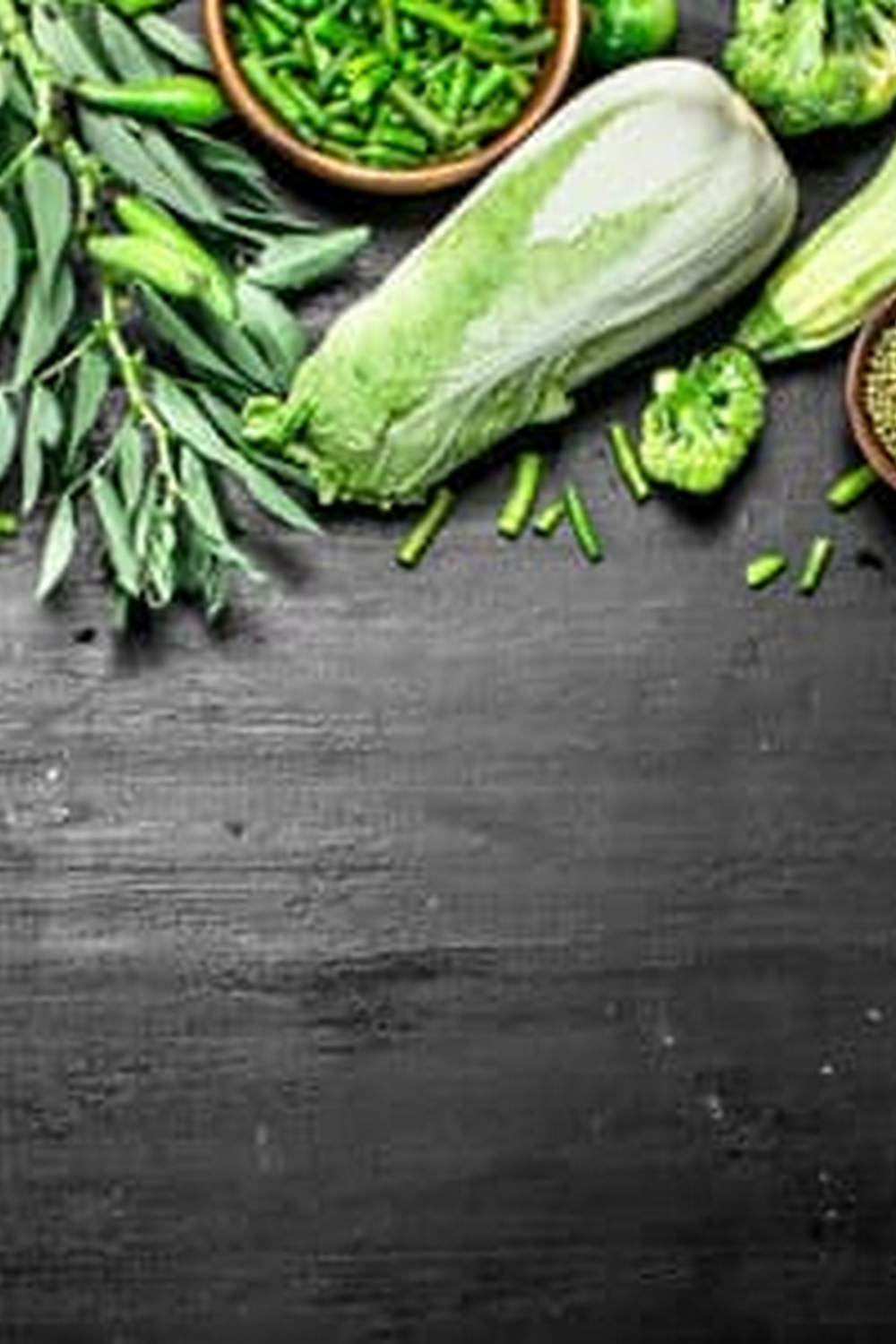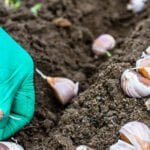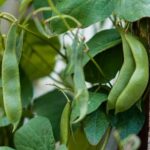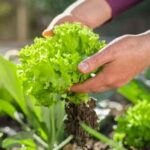Is 19-19-19 fertilizer good for vegetable gardens? This is a common question among gardeners looking to maximize the health and yield of their vegetables.
In this article, we will explore the use of 19-19-19 fertilizer in vegetable gardens, understanding its NPK ratio, benefits, potential drawbacks, application tips, and how it compares to other types of fertilizers. We will also delve into real-life case studies to see the practical effects of using 19-19-19 fertilizer in vegetable gardens.
The proper use of fertilizers is critical for the success of any vegetable garden. Understanding the components and ratios of fertilizers is essential to making informed decisions about what is best for your specific garden. In this section, we will introduce 19-19-19 fertilizer and provide an overview of its use in vegetable gardens.
We will start by explaining what the NPK ratio on fertilizer packaging means, specifically dissecting what 19-19-19 stands for. The article will cover the different properties and effects that each element has on plant growth and development, helping you understand how this particular balance can benefit your vegetables.
Understanding the NPK Ratio
A 19-19-19 fertilizer is a balanced fertilizer because it contains an equal ratio of nitrogen (N), phosphorus (P), and potassium (K). The NPK ratio, which is always displayed on fertilizer packaging, helps gardeners understand the nutrient composition of the product. In the case of 19-19-19 fertilizer, each chemical element makes up 19% of the product.
Nitrogen (N) is responsible for healthy leafy growth in plants, phosphorus (P) supports root development and overall plant strength, and potassium (K) aids in fruit production and disease resistance. With a balanced NPK ratio like that found in 19-19-19 fertilizer, you can ensure that your vegetable garden receives a well-rounded nutrient supply.
Using a 19-19-19 fertilizer for your vegetable garden provides numerous benefits. Since this type of fertilizer contains equal parts of N, P, and K, it ensures that your vegetable plants receive all the essential nutrients they need for healthy growth and high yields.
Because of its balanced formula, 19-19-19 fertilizer is suitable for all stages of plant growth, from seedling to fruiting and flowering. Additionally, this type of fertilizer promotes strong root systems as well as vibrant green foliage – two factors crucial for growing robust vegetables.
According to experts, applying nitrogen-rich fertilizers to vegetable gardens can result in excessive foliage at the expense of fruit development. In contrast, using a balanced formulation like 18-18-18 helps prevent excess vegetative growth while supporting reproductive growth-essential for producing high-quality vegetables. Therefore,is important to be cautious not to overapply 18-18-8 or other similar fertilizers that are rich in nitrogen when growing vegetables.
Benefits of Using 19-19-19 Fertilizer in Vegetable Gardens
Enhances Overall Plant Health and Growth
The balanced NPK ratio of 19-19-19 fertilizer provides essential nutrients that promote healthy growth and development in vegetable plants. Nitrogen (N) is crucial for leafy green growth, phosphorus (P) supports root development and flowering, and potassium (K) helps with overall plant health and disease resistance. When used in vegetable gardens, this balanced fertilizer can help produce robust plants with vibrant foliage, strong root systems, and high-quality fruits.
Uniform Nutrient Distribution
One of the key benefits of using 19-19-19 fertilizer is its ability to provide a uniform distribution of nutrients to vegetable plants. This ensures that each plant receives the necessary elements for optimal growth and productivity. Additionally, the balanced ratio minimizes the risk of over-fertilization or nutrient deficiencies, making it an ideal choice for maintaining consistent plant health throughout the growing season.
Promotes Fruit Development
In vegetable gardens, the use of 19-19-19 fertilizer can lead to improved fruit production. The high phosphorus content in this type of fertilizer aids in flower formation and fruit development. As a result, using 19-19-19 fertilizer is especially beneficial for fruiting vegetables such as tomatoes, peppers, and cucumbers. By incorporating this fertilizer into your gardening routine, you can expect to see an increase in the quantity and quality of your harvest.
Overall, when used correctly and in moderation, 19-19-19 fertilizer can be highly advantageous for vegetable gardens by promoting robust plant growth, ensuring uniform nutrient distribution, and enhancing fruit development. However, it is important to consider potential drawbacks and application tips to maximize its benefits without harming your garden.
Potential Drawbacks of Using 19-19-19 Fertilizer
When considering the use of 19-19-19 fertilizer in vegetable gardens, it is important to be aware of potential drawbacks that may come with its use. While this type of balanced fertilizer can provide essential nutrients to plants, there are some factors to consider before applying it to your garden.
One potential drawback of using 19-19-19 fertilizer is the risk of over-fertilization. Since this type of fertilizer contains equal parts nitrogen, phosphorus, and potassium, there is a possibility of adding too much of these nutrients to the soil. This can lead to nutrient imbalances, which in turn can negatively impact plant growth and overall health.
Another drawback to consider is the cost associated with using 19-19-19 fertilizer. Due to its balanced NPK ratio, this type of fertilizer may be more expensive compared to other options on the market. For gardeners on a budget, the cost factor may influence their decision when choosing a fertilizer for their vegetable garden.
Additionally, some environmental concerns may arise with the use of 19-19-19 fertilizer. If not used properly and applied in excess, there is a risk of runoff into water sources, which can contribute to water pollution. It is important for gardeners to follow application guidelines carefully and consider environmentally-friendly alternatives when possible.
| Potential Drawbacks | Description |
|---|---|
| Over-fertilization | May lead to nutrient imbalances and affect plant growth |
| Cost | More expensive compared to other fertilizers |
| Environmental Impact | Risk of runoff into water sources causing pollution |
Application Tips for Using 19-19-19 Fertilizer in Vegetable Gardens
When it comes to using 19-19-19 fertilizer in your vegetable garden, proper application is key to ensuring the health and vigor of your plants. Here are some essential tips for effectively using 19-19-19 fertilizer in your vegetable garden.
Timing
It’s important to apply 19-19-19 fertilizer at the right time. Generally, this type of balanced fertilizer can be applied at the beginning of the growing season when plants are actively growing and need a nutrient boost. It can also be applied mid-season to replenish nutrients that may have been depleted by the plants as they grow and produce vegetables.
Measurement
Proper measurement is crucial when applying 19-19-19 fertilizer. Be sure to follow the instructions on the packaging carefully and measure out the correct amount of fertilizer for your vegetable garden. Over-application can lead to nutrient imbalances in the soil, while under-application may not provide enough nutrients for your plants.
Application Method
There are different methods for applying 19-19-19 fertilizer to your vegetable garden. You can use a broadcast spreader to evenly distribute the fertilizer over the entire garden area, or you can use a handheld spreader for smaller gardens. Another method is side-dressing, where you apply the fertilizer in a band alongside plant rows or individual plants.
By following these application tips, you can make sure that 19-19-19 fertilizer is used effectively in your vegetable garden, providing much-needed nutrients for healthy plant growth and bountiful harvests.
Comparing 19-19-19 Fertilizer to Other Types of Fertilizers for Vegetable Gardens
When it comes to choosing the right fertilizer for your vegetable garden, the options can be overwhelming. One popular choice is 19-19-19 fertilizer, but how does it compare to other types of fertilizers on the market? Let’s take a closer look at how 19-19-19 fertilizer stacks up against other options:
- Chemical Fertilizers: 19-19-19 fertilizer is classified as a chemical fertilizer, meaning it is manufactured using synthetic materials. While chemical fertilizers are generally effective at providing plants with essential nutrients, they can also have negative impacts on the environment if not used properly.
- Organic Fertilizers: In contrast to 19-19-19 fertilizer, organic fertilizers are derived from natural sources such as compost, manure, and bone meal. Many gardeners prefer organic fertilizers due to their eco-friendly nature and ability to improve soil health over time.
- Slow-Release Fertilizers: Another type of fertilizer worth comparing to 19-19-19 is slow-release fertilizers. These products provide a steady supply of nutrients to plants over an extended period, reducing the risk of nutrient leaching and minimizing the need for frequent applications.
Each type of fertilizer has its own set of advantages and drawbacks, so it’s important to consider your specific gardening goals and values when making a decision. Some gardeners prioritize convenience and rapid results, while others prioritize sustainability and long-term soil health.
Ultimately, the best fertilizer for your vegetable garden depends on factors such as plant species, soil composition, climate conditions, and personal preferences. By comparing 19-19-19 fertilizer to other types of fertilizers, you can make an informed decision that aligns with your gardening philosophy and goals.
Case Studies
When it comes to using 19-19-19 fertilizer in vegetable gardens, many gardeners have found success with this balanced formula. Here are some real-life examples of how 19-19-19 fertilizer has been used in vegetable gardens:
Case Study 1: Organic Vegetable Garden
In a small-scale organic vegetable garden, the use of 19-19-19 fertilizer helped to provide essential nutrients to the plants without compromising the organic integrity of the garden. By following the recommended application rates, the gardeners were able to achieve healthy growth and high yields of their vegetables.
Case Study 2: Large-Scale Commercial Vegetable Farm
On a larger scale, a commercial vegetable farm incorporated 19-19-19 fertilizer into their soil management program. The balanced nutrients provided by the fertilizer resulted in increased productivity and improved overall plant health. The ease of application and consistent results made it a practical choice for the large operation.
Case Study 3: Home Garden Experiment
In an experiment conducted in a home vegetable garden, two plots were fertilized with different products – one with 19-19-19 fertilizer and the other with a different NPK ratio. The plot treated with 19-19-19 showed more vigorous growth and better yield compared to the other plot. This experiment demonstrated the effectiveness of 19-19-19 fertilizer in promoting healthy vegetable growth.
Overall, these case studies illustrate how 19-19-19 fertilizer is beneficial for vegetable gardens of varying sizes and farming practices. From small organic gardens to large-scale commercial operations, this balanced formula has consistently proved its worth in providing essential nutrients for optimal vegetable growth.
Conclusion
In conclusion, the use of 19-19-19 fertilizer in vegetable gardens can be an effective way to provide essential nutrients to your plants. With a balanced NPK ratio of 19% nitrogen, 19% phosphorus, and 19% potassium, this type of fertilizer can promote healthy growth, strong roots, and improved yield for your vegetables. The combination of these three key nutrients can provide the necessary support for all stages of plant development, from seedling to harvest.
While there are certainly benefits to using 19-19-19 fertilizer in vegetable gardens, it is important to be mindful of potential drawbacks as well. Overuse of this type of fertilizer can lead to nutrient imbalances in the soil and potentially harm the environment. Additionally, application tips such as proper timing and dosage should be followed to ensure that the fertilizer is used effectively without causing harm to your plants.
When considering whether 19-19-19 fertilizer is good for your vegetable garden, it is crucial to assess your specific gardening needs and goals. While this type of fertilizer can be effective for some gardeners, others may find that alternative fertilizers better suit their needs. Ultimately, it is recommended to consult with a gardening expert or perform soil tests to determine the most suitable fertilizer for your specific vegetable garden needs.
Frequently Asked Questions
What Is NPK 19-19-19 Fertilizer Used For?
NPK 19-19-19 fertilizer is used for providing a balanced supply of essential nutrients to plants. The ratio of nitrogen, phosphorus, and potassium in this fertilizer promotes healthy growth, strong roots, and overall plant development.
What Is the Best Fertilizer Ratio for Vegetable Gardens?
The best fertilizer ratio for vegetable gardens depends on the specific needs of the plants being grown. Generally, a balanced fertilizer with an equal ratio of NPK is suitable for most vegetable gardens. However, it’s important to consider soil test results and specific plant requirements before determining the best fertilizer ratio.
Is 19-19-19 a Good Starter Fertilizer?
Yes, 19-19-19 is considered a good starter fertilizer because it provides a balanced combination of nitrogen, phosphorus, and potassium that can promote healthy root development and early plant growth. This balanced nutrient ratio can help young plants establish themselves effectively in the soil.

If you’re looking to get into vegetable gardening, or are just looking for some tips on how to make your current garden better, then you’ve come to the right place! My name is Ethel and I have been gardening for years. In this blog, I’m going to share with you some of my best tips on how to create a successful vegetable garden.





